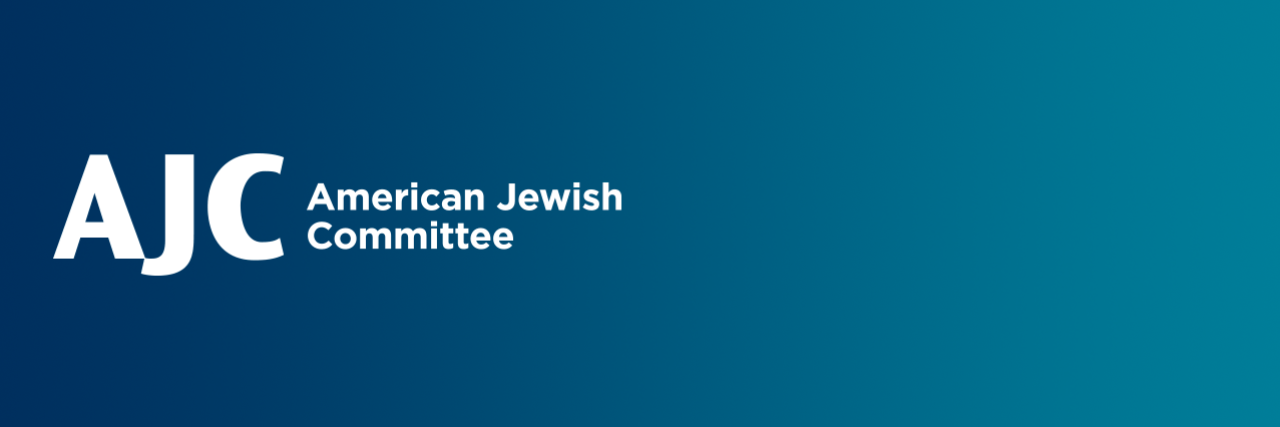November 23, 2021 — Abu Dhabi
An American Jewish Committee (AJC) leadership delegation concluded a week of consultations and institutional events in three Arab Gulf capitals, continuing AJC’s 25-year-plus engagement with regional governments and building on the breakthrough 2020 Abraham Accords normalization agreements between Israel and two Gulf states, the United Arab Emirates and Bahrain.
The group’s agenda included the affixing of a mezuzah, a case containing Hebrew verses from the Torah that is traditionally found on the doorposts of Jewish homes, to the entrance of the office suite of AJC Abu Dhabi: The Sidney Lerner Center for Arab-Jewish Understanding, which is scheduled to open in March 2022, when it will become the global organization’s 13th international outpost, and first in an Arab state.
“Establishing a continuous presence in the Gulf, where we have been forging relationships of trust and common purpose for a generation, has been a dream long nurtured by AJC lay and staff leadership,” said Jason Isaacson, AJC Chief Policy and Political Affairs Officer, who has led the organization’s regional outreach. “AJC Abu Dhabi, under the direction of the veteran U.S. diplomat Ambassador Marc Sievers, will take our presence – and our message of mutual respect and partnership in confronting shared challenges – to a new level.”
The delegation had substantive meetings with government ministers and other senior officials, as well as policy analysts, and civil society and business leaders, in the Sultanate of Oman, the Kingdom of Bahrain, and the United Arab Emirates. The group met with senior U.S. diplomats in all three countries, and with the commander of the Bahrain-based U.S. Naval Forces Central Command. In Bahrain and the UAE, both of which have exchanged ambassadors with Israel in recent months, the group also met with top Israeli diplomats and with members of the Jewish communities in Muscat, Manama, Abu Dhabi, and Dubai.
The group’s program included discussions on regional security challenges and the potential for wider strategic cooperation; interfaith programming and the increasing recognition of Jewish heritage in the region; ongoing efforts to meet development goals and combat extremism; and aspirations for further strengthening of strategic, economic, political, and cultural ties to the United States – and, increasingly, to Israel. Ministries of Foreign Affairs, Religious Affairs, Finance, Education, Culture, and Youth Affairs were among the stops on the AJC delegation’s agenda – as was the newly renovated synagogue in Manama, in a tour conducted by Bahrain’s former Ambassador to the United States, Houda Nonoo, a member of the country’s indigenous Jewish community.
In Dubai, the delegation attended a panel discussion at the Expo 2020 U.S. Pavilion on interfaith understanding and community engagement, featuring Ambassador Sievers, and toured the Crossroads of Civilizations Museum, including its carefully researched Holocaust exhibit, with museum founder Ahmed Obaid Al Mansoori and the visiting High Representative of the UN Alliance of Civilizations, former Spanish Foreign Minister Miguel Moratinos.
Participating in the AJC board delegation were Suzi Jaffe, of New York; Roberta Baruch and Andrew Marks, of Washington; Michael Feldstein, of New Jersey; and Merle and David Horwitz, of Atlanta, along with Isaacson and Benjamin Rogers, AJC Director of Middle East and North Africa Initiatives. At the conclusion of the delegation’s program, in the UAE, Isaacson returned to Bahrain for the weekend’s IISS Manama Dialogue, an annual strategic affairs conference, in which he was a delegate.


